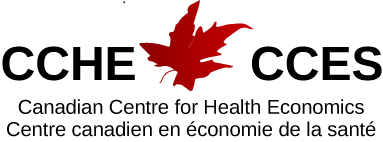
CCHE Seminar: Adrian Rohit Dass, University of Toronto
The Use of Data Combination for Small, Unrepresentative Survey Data: Simulation and Application of Mis-specified Moment Condition Models
Abstract: Survey data can be subject to poor response rates and small sample sizes. This may limit the generalizability of the findings, as well as result in large standard errors. The technique of data combination can be used to combine marginal moments from a representative dataset with the biased survey data. This method can be used to change the survey estimates towards values that are representative of the population and reduce standard errors. An important issue related to the data combination literature is the choice of estimator to combine the moments. This is because the moment restriction function becomes mis-specified when the survey is not randomly sampled, and different moment condition estimators converge in probability to different values under misspecification. This paper performs Monte Carlo simulations to compare the performance of Generalized Method of Moments (GMM), Empirical Likelihood (EL), Exponential Tilting (ET), and Exponentially Tilted Empirical Likelihood (ETEL) in the context of data combination with small, non-randomly sampled survey data. The results show that ET is generally most successful in recovering the true parameters under a variety of sampling schemes. An application investigating the determinants of wages of Health Support Workers (HSWs) is presented. The econometric techniques presented in this study may be useful for researchers working with survey data that is small and unrepresentative of the population. In addition, the results may have important insights for other cases of mis-specified moment condition models that appear in applied research settings.
Adrian Rohit Dass is a fourth year PhD student at the Institute of Health Policy, Management, and Evaluation at the University of Toronto. He holds a Masters Degree in Economics from the University of Guelph. He is interested in the application of econometric methods to survey and administrative data from longitudinal studies. His primary area of research is applied microeconometrics in the field of health economics.
Join the CCHE Health Economics seminar series mailing list by sending a request to cche@utoronto.ca
 |
 |
Related Events

Sign up for IHPME Connect.
Keep up to date with IHPME’s News & Research, Events & Program, Recognition, e-newsletter.
Subscribe to Connect Newsletter
Get in Contact
Communications
Marielle Boutin
Email Address: ihpme.communications@utoronto.ca

